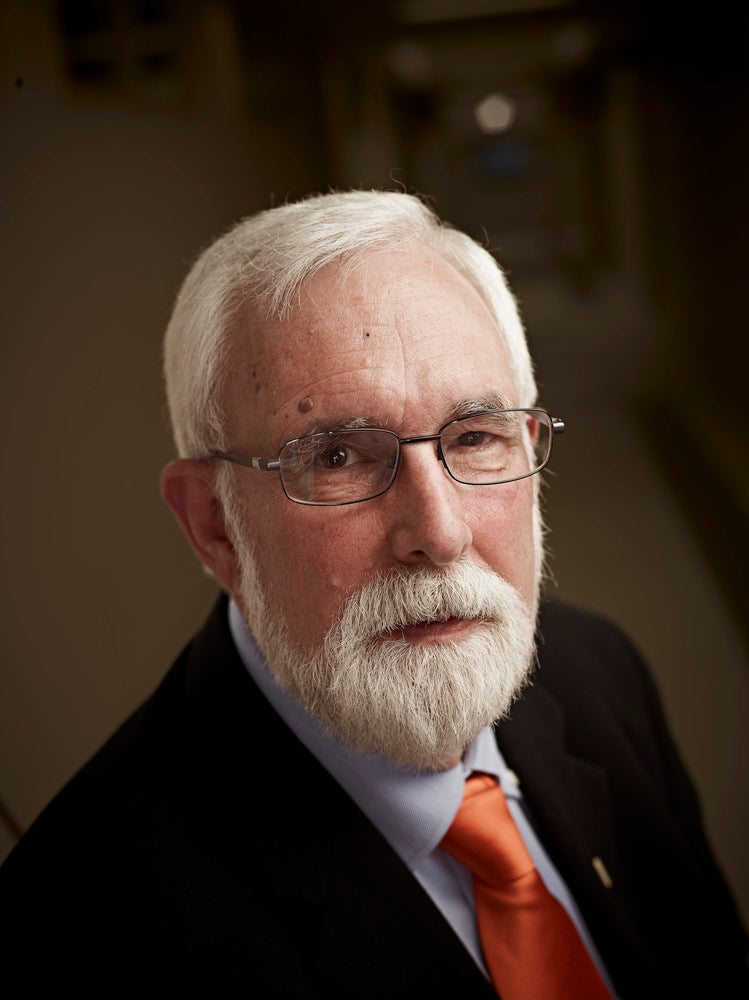
By his colleagues in the Department of Psychology
It is with heavy hearts that we note the passing of our dear colleague and friend, the incomparable Mark Zanna, professor of psychology at Waterloo for 39 years and a Killam Prize Laureate.
Mark loved social psychology and he was one of the field’s most brilliant thinkers and researchers. He had a particular genius for crafting experiments that cleverly disentangled confounds and ruled out alternative explanations. Mark is perhaps most famous for his legendary experiments with Joel Cooper that provided an ingenious model for how to test the influence of motivational processes that people may not be able to consciously report. But there are countless other examples of Mark’s exquisite craftsmanship as an experimentalist. Indeed, Mark’s research made essential contributions to nearly every topic in the field including his influential studies of the structure of attitudes, attitude change processes, ambivalence, cognitive dissonance, prejudice and stereotyping, self-fulfilling prophesies, and the psychology of alcohol and smoking.
Mark was a natural storyteller. His experiments were like beautifully crafted stories that provided deep insights into the workings of the mind, always situating those processes in an evocative social context. Mark loved to share stories about the process of discovery that recaptured the excitement of having an idea and then translating it into a research design. Given that Mark was a social psychologist, it is perhaps fitting that many of his stories about the inspiration for his research centred on how these ideas emerged through a discussion with a colleague or student or an observation from everyday life.
Mark was also an incredible mentor who had a rare gift for nurturing others’ creativity. So many of us who knew Mark can share stories about how our research programs were transformed by a brilliant question Mark asked in a brownbag presentation or thesis meeting. Mark was a generous listener who showed a remarkable ability to discover an idea that had not yet occurred even to the person delivering a research presentation. Mark’s generative spirit is beautifully captured in his co-edited volume The Compleat Academic, which provides invaluable practical advice for emerging scholars. Given Mark’s generativity it makes sense that his students have gone on to be leaders in the field carrying forward his legacy.
Mark’s love for social psychology is also evident in the work that he did to promote innovation in the field by co-editing with James Olson the influential series Advances in Experimental Social Psychology. The many ground-breaking papers that were published under Mark’s editorship show his remarkable skill for identifying and championing promising ideas. Mark also made an indelible contribution to shaping the field by co-organizing The Ontario Symposium, which was the incubator for some of the foundational ideas for theory and research on social cognition and motivation.
Mark received his Bachelor’s degree and doctorate at Yale University. Over the course of his remarkable career, Mark published over 150 articles in top psychology journals and many book chapters. Mark also edited several books, including the Advances in Experimental Social Psychology series. Mark was the president of the Society for Experimental Social Psychology and he served as an associate editor or editorial board member of several psychology journals. In recognition of his academic contributions, Mark received several distinguished honours, including the Canadian Psychological Association’s Donald O. Hebb Award and the Society of Personality and Social Psychology’s Donald T. Campbell Award. In 2011, Mark received the prestigious Killam Prize Laureate for the Social Sciences, one of Canada’s highest academic honours. Mark also served two terms as chair of the University of Waterloo’s Psychology Department and he was named Distinguished Professor Emeritus for 39 years of service at the University of Waterloo.
Mark’s enthusiasm for psychology was surpassed only by his love for his family and many friends. Mark and his wife Betsy were the heart of the University of Waterloo’s community. They had friends across the university including faculty, staff, and students. Mark and Betsy were also enthusiastic boosters of the athletic programs who loyally attended games and cheered on the teams through thick and thin. Mark’s love and deep pride for his sons and grandchildren were evident in how he would light up whenever he shared stories about their many activities and good works.
In the many ways that he exemplified the values of scholarship, family, and community, Mark truly was the compleat academic.
There will be a visitation at the Erb & Good Family Funeral Home on Saturday, February 29 from 4pm to 8pm, with an opportunity to share remembrances or remarks at 6:30pm.